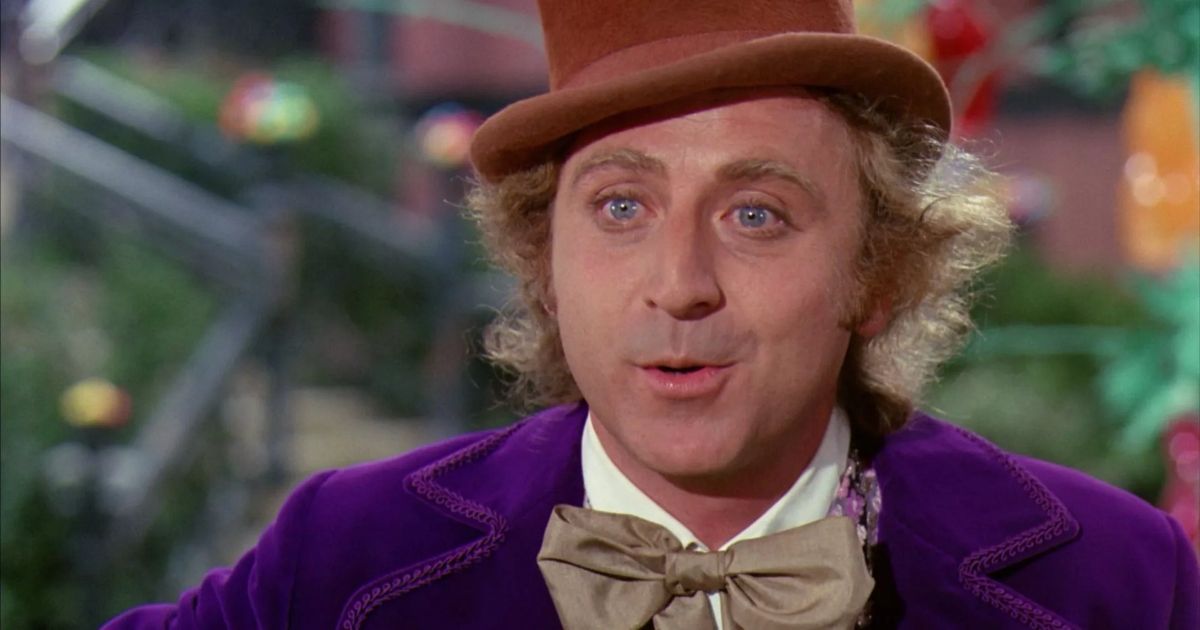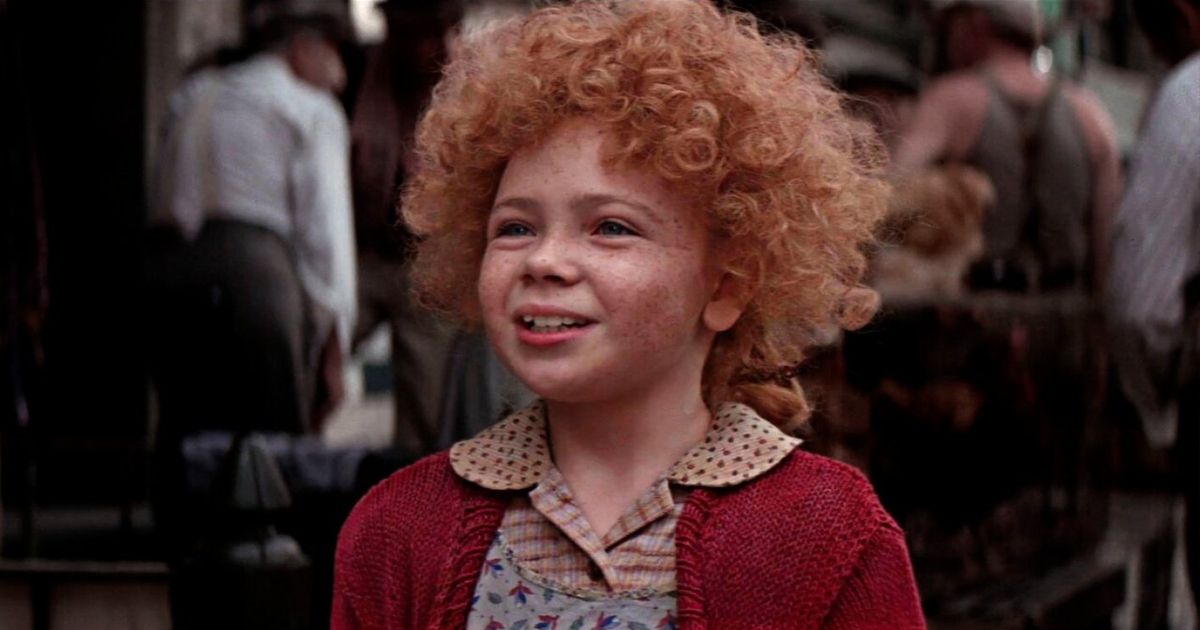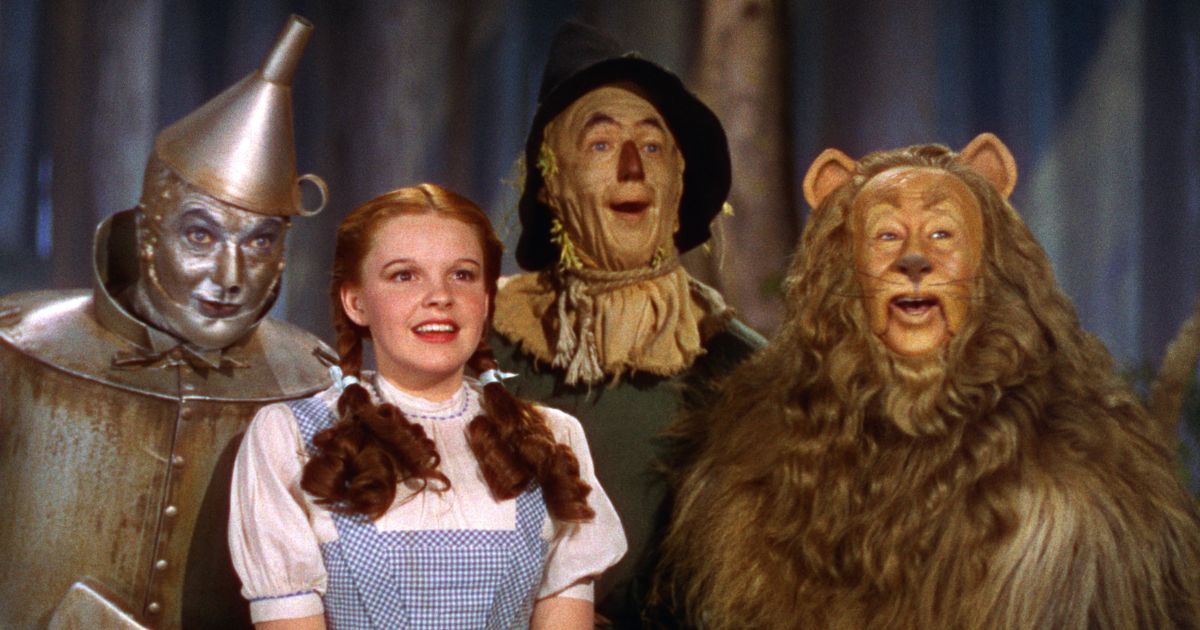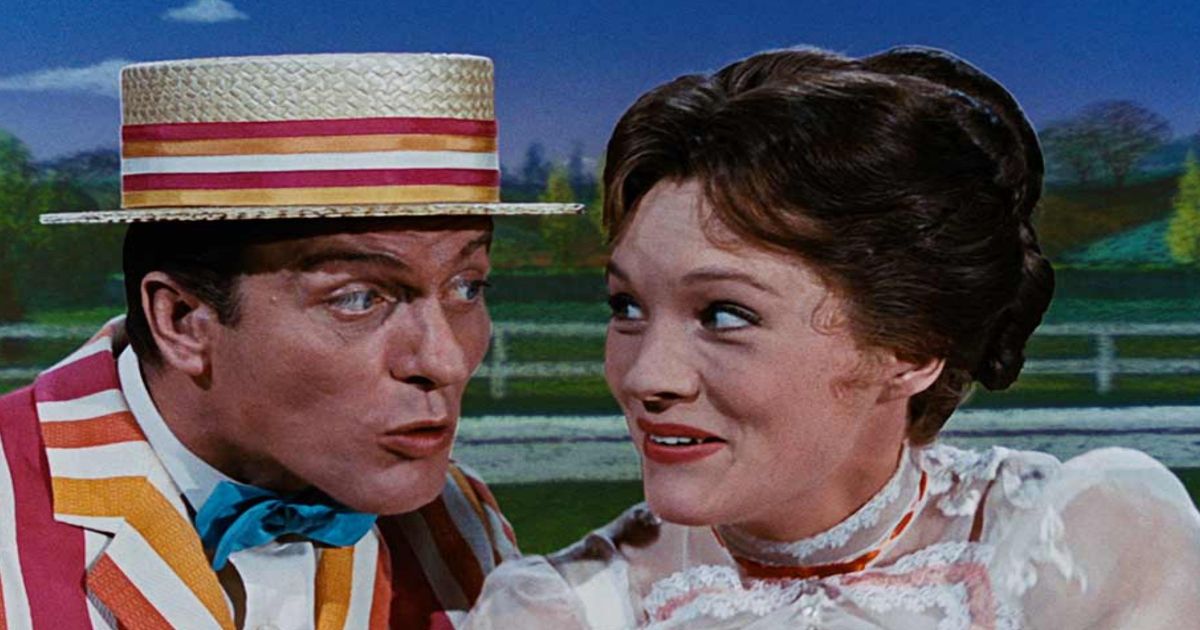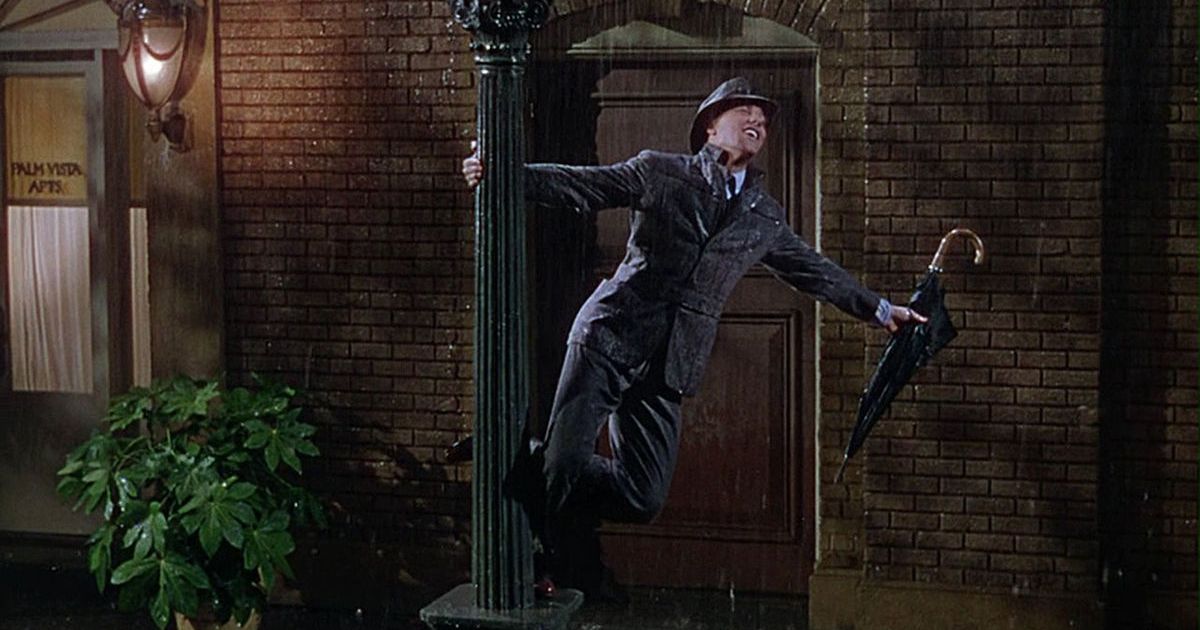Musicals are a surreal slice of life. Everyday events become these large-scale productions filled with song and dance. The lyrics lift you out of the mundane and speak truth to the human condition. A playful self-awareness allows the audience to see their own lives as a song and dance.
Flowery, clever language breathes sighs of relief into the painful and depressing. Sad songs even have their happy melodies, sprinkling in signs of resilience. Musicals possess a contrarian nature, one of a chaotic control that is both perfect agreement and challenging dissonance. Through all the rose-colored and maladaptive scenes, musicals provide more than just earworms, they create memories.
10 Funny Girl (1968) - "Don't Rain on My Parade"
The 1968 biographical musical Funny Girl stars Barbra Streisand, who plays the Broadway and Ziegfeld Follies star Fanny Brice and her turbulent relationship to con artist Nick Arnstein. The signature song "Don't Rain on My Parade" ends the first act of the movie and play, after Fanny's career takes off and she meets Nick.
She is determined to marry Nick, despite the hardship of him being in prison. The song was inducted into the Grammy Hall of Fame and has become a pop culture phenomenon in many movies, television shows, and covers by musicians.
9 New York, New York (1949) - "On the Town"
New York, New York is a musical starring Gene Kelly, Frank Sinatra, and Jules Munshin as US Navy sailors on a 24-hour shore leave in New York City. They tour the concrete jungle and take advantage of the luxuries they didn't have at sea. The song "New York, New York" is well-known for its upbeat tempo and the lyric, "New York, New York, a helluva town. The Bronx is up, but the Battery's down."
It was ranked No. 41 on the American Film Institute survey AFI's 100 Years... 100 Songs in 2004, a catalog of America's top 100 songs from the 20th century.
8 The Music Man (1962) - "Ya Got Trouble"
The Music Man stars Robert Preston as Professor Harold Hill, his alias for swindling the towns he travels to. The song "Ya Got Trouble" is a long-winded yet smoothly delivered tirade of forewarning to the parents of fictional River City, Iowa. Hill creates a moral panic, convincing them that their children are turning into miscreants, claiming that the local pool hall begins with P and rhymes with T for trouble.
Preston's performance is remarkable for its well-written metaphors and tongue-in-cheek language, all of which is a ploy to get the town's money to convert their corrupt youth into a clean-cut marching band.
7 Chitty Chitty Bang Bang (1968) - "Chitty Chitty Bang Bang"
Chitty Chitty Bang Bang is a musical fantasy loosely based on the 1964 children's novel Chitty-Chitty-Bang-Bang by Ian Fleming. An inventor buys and refurbishes an old champion racecar, naming it after the unusual sounds its engine makes. The titular song, with its joyful, simple lyrics, is a road trip classic that would make any driver proud to call their car a fine, four-fendered friend.
6 Willy Wonka and the Chocolate Factory (1971) - "Oompa Loompa"
Willy Wonka and the Chocolate Factory is another musical fantasy following the famous chocolatier giving a tour of his chocolate factory to his Golden Ticket winners. The song "Oompa Loompa" introduces the factory workers from a foreign origin, singing the bittersweet tune of consumerism and moderation. The serious tone and the choreographed, wild appearance of the Oompa Loompas teaches a life lesson in a fun way.
5 Annie (1982) - "It's the Hard-Knock Life"
Annie is the first movie adaptation of the 1977 musical of the same name, both of which are based on the comic strip, Little Orphan Annie. It tells the story of a 10-year-old orphan girl named Annie who is adopted by the billionaire Oliver Warbucks in New York City. The song "It's the Hard-Knock Life" recounts toil, drudgery, neglect, and mistreatment of the chores the all-girls orphanage must endure. The orphans' wails bring about a resounding camaraderie that works through despair.
4 The Sound of Music (1965) - "Do-Re-Mi"
The Sound of Music follows an Austrian governess overseeing a retired naval officer and widower's seven children at their villa. She teaches the children the power of song through the musical number "Do-Re-Mi" while in the mountains of Salzburg. The powerful, visual metaphors and the free-spirited refrain shows that there is music in life and life in music.
3 The Wizard of Oz (1939) - "We're Off to See the Wizard"
The Wizard of Oz is a musical fantasy based on the L. Frank Baum's 1900 children's fantasy novel The Wonderful Wizard of Oz. A farm girl from Kansas falls unconscious after a tornado strikes her home. She wakes up in Munchkinland in the land of Oz where the Good Witch of the North tells her that the Wizard of Oz may help her return home. Along the way, she sings the catchy song "We're Off to See the Wizard" while touting his magical powers.
2 Mary Poppins (1964) - "Supercalifragilisticexpialidocious"
Mary Poppins is the magical nanny with all the giddy charm of a child. She presents a firm but fun way to teach children how to behave. After finishing first place in a horse race, Mary is seemingly at a loss for words. She comes up with a nonsense word and song to describe her excitement: "Supercalifragilisticexpialidocious." The spry whimsy of the long word puts anyone, including wordsmiths, in a good mood.
1 Singin' in the Rain (1952) - "Singin' in the Rain"
Singin' in the Rain is a musical romantic comedy following actors transitioning from silent films to talkies or pictures with sounds in the late 1920s. When the film is in jeopardy of being pulled from production, silent film star Don Lockwood gets the idea to dub the voice of an actress and turn the film into a musical. Overjoyed by the idea to save his movie, Don begins singing the title song "Singin' in the Rain" while dancing the troubles away.

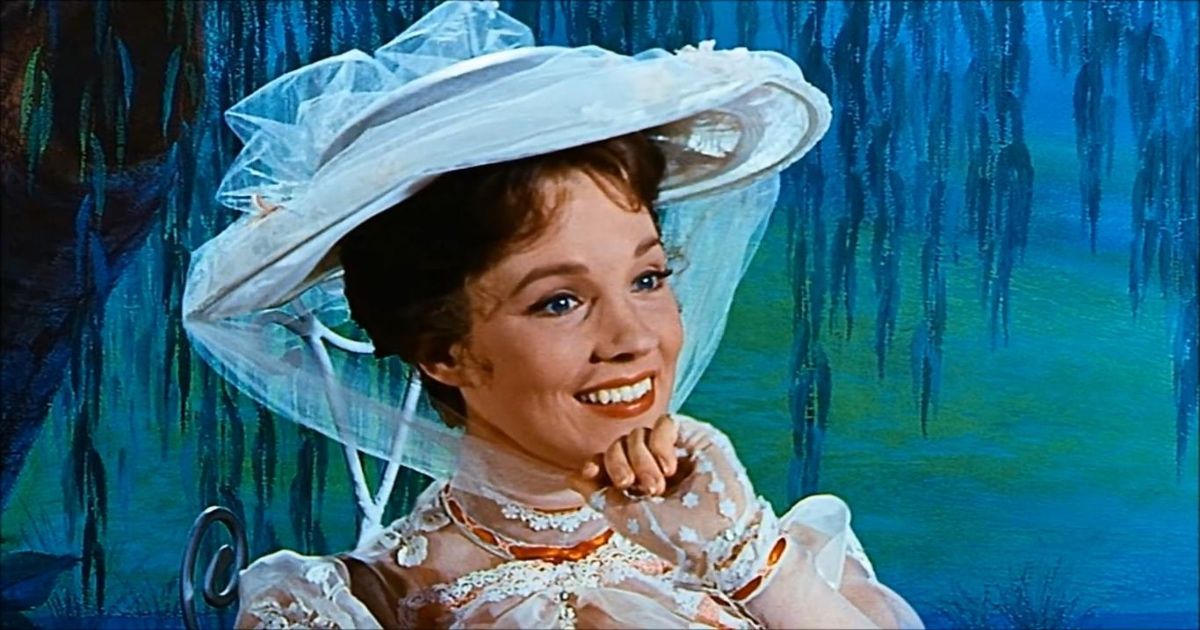
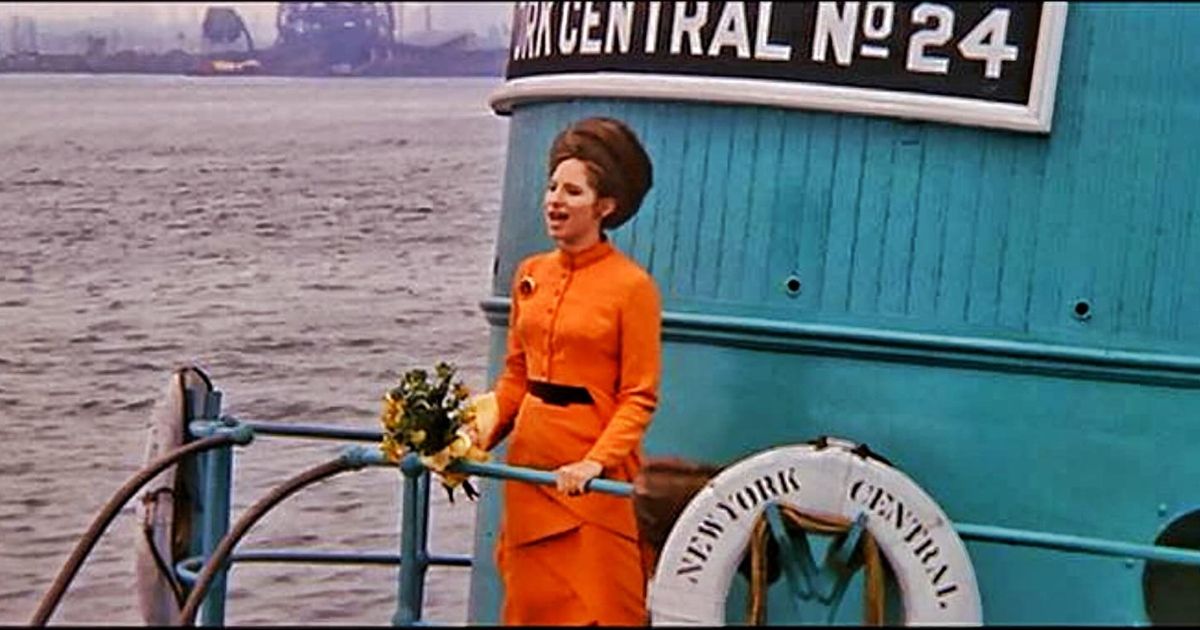
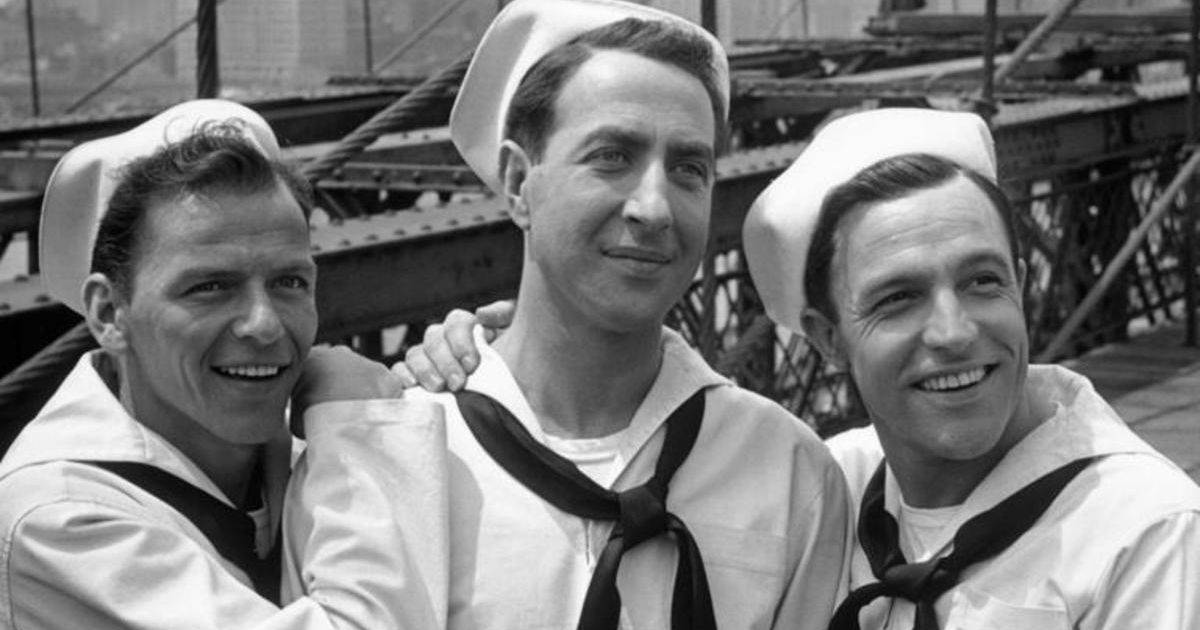
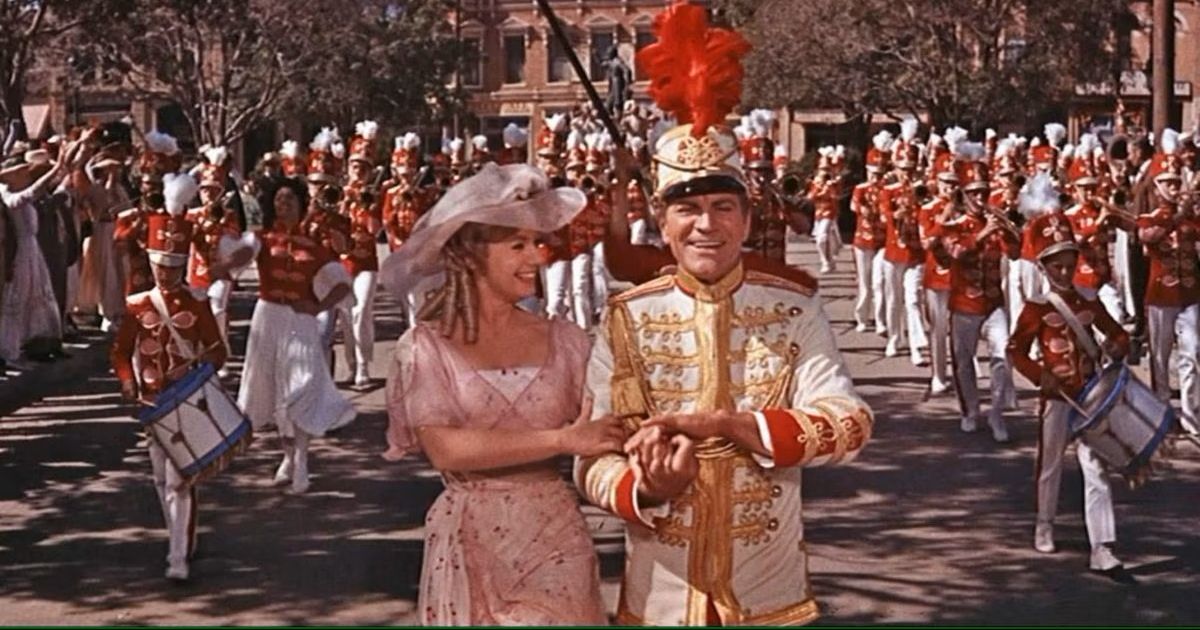
.jpg)
